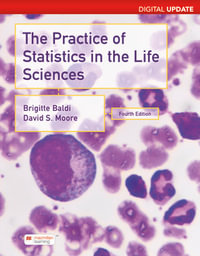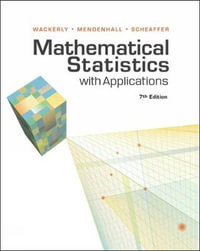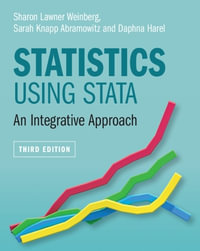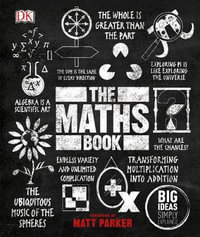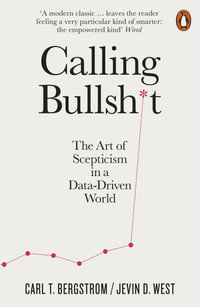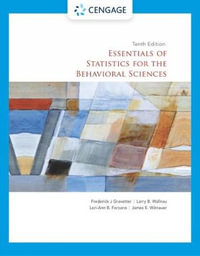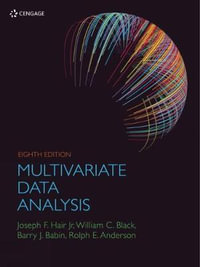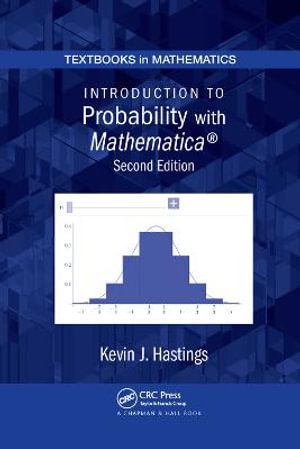
Introduction to Probability with Mathematica
Paperback | 19 September 2019 | Edition Number 2
At a Glance
Paperback
RRP $135.00
$112.25
17%OFF
Aims to ship in 7 to 10 business days
When will this arrive by?
Enter delivery postcode to estimate
Updated to conform to Mathematica (R) 7.0, Introduction to Probability with Mathematica (R), Second Edition continues to show students how to easily create simulations from templates and solve problems using Mathematica. It provides a real understanding of probabilistic modeling and the analysis of data and encourages the application of these ideas to practical problems. The accompanying CD-ROM offers instructors the option of creating class notes, demonstrations, and projects.
New to the Second Edition
- Expanded section on Markov chains that includes a study of absorbing chains
- New sections on order statistics, transformations of multivariate normal random variables, and Brownian motion
- More example data of the normal distribution
- More attention on conditional expectation, which has become significant in financial mathematics
- Additional problems from Actuarial Exam P
- New appendix that gives a basic introduction to Mathematica
- New examples, exercises, and data sets, particularly on the bivariate normal distribution
- New visualization and animation features from Mathematica 7.0
- Updated Mathematica notebooks on the CD-ROM (Go to Downloads/Updates tab for link to CD files.)
After covering topics in discrete probability, the text presents a fairly standard treatment of common discrete distributions. It then transitions to continuous probability and continuous distributions, including normal, bivariate normal, gamma, and chi-square distributions. The author goes on to examine the history of probability, the laws of large numbers, and the central limit theorem. The final chapter explores stochastic processes and applications, ideal for students in operations research and finance.
Industry Reviews
If you own the first edition, you will be very pleased with the second edition. It is more complete, better organized, and even more well-presented. If you don't own the first edition, and are looking for an effective tool for conveying probabilistic concepts, Hastings' book should certainly be one you consider.
--Jane L. Harvill, The American Statistician, November 2011
Introduction to Probability with Mathematica adds computational exercises to the traditional undergraduate probability curriculum without cutting out theory. ... a good textbook for a class with a strong emphasis on hands-on experience with probability. ... One interesting feature of the book is that each set of exercises includes a few problems taken from actuarial exams. No doubt this will comfort students who are taking a probability course in hopes that it will prepare them for an actuarial exam. Another interesting feature is the discussion of the Central Limit Theorem. The book goes into an interesting discussion of the history of the theorem ... .
--MAA Reviews, December 2009
ISBN: 9780367385194
ISBN-10: 0367385198
Series: Textbooks in Mathematics
Published: 19th September 2019
Format: Paperback
Language: English
Number of Pages: 468
Audience: College, Tertiary and University
Publisher: Taylor & Francis Ltd
Country of Publication: GB
Edition Number: 2
Edition Type: New edition
Dimensions (cm): 23.4 x 15.6 x 2.39
Weight (kg): 0.3
Shipping
| Standard Shipping | Express Shipping | |
|---|---|---|
| Metro postcodes: | $9.99 | $14.95 |
| Regional postcodes: | $9.99 | $14.95 |
| Rural postcodes: | $9.99 | $14.95 |
How to return your order
At Booktopia, we offer hassle-free returns in accordance with our returns policy. If you wish to return an item, please get in touch with Booktopia Customer Care.
Additional postage charges may be applicable.
Defective items
If there is a problem with any of the items received for your order then the Booktopia Customer Care team is ready to assist you.
For more info please visit our Help Centre.
